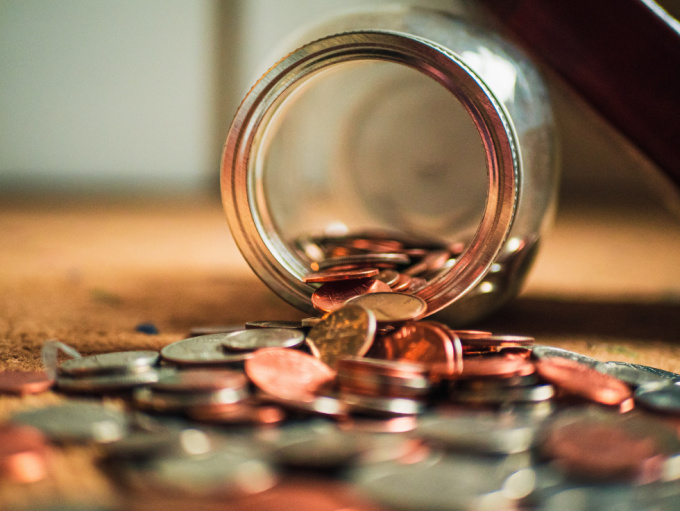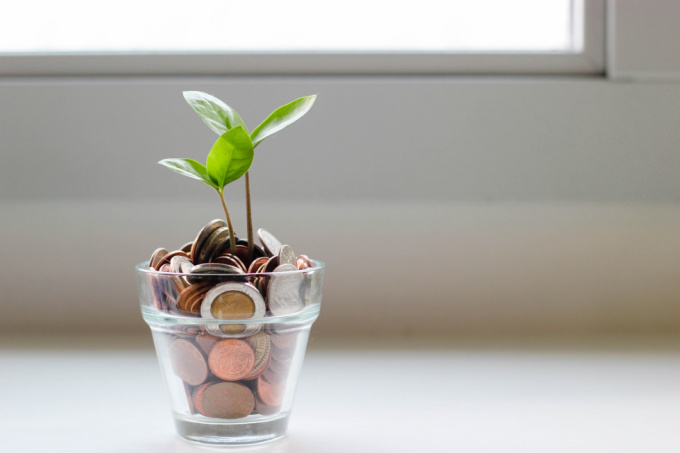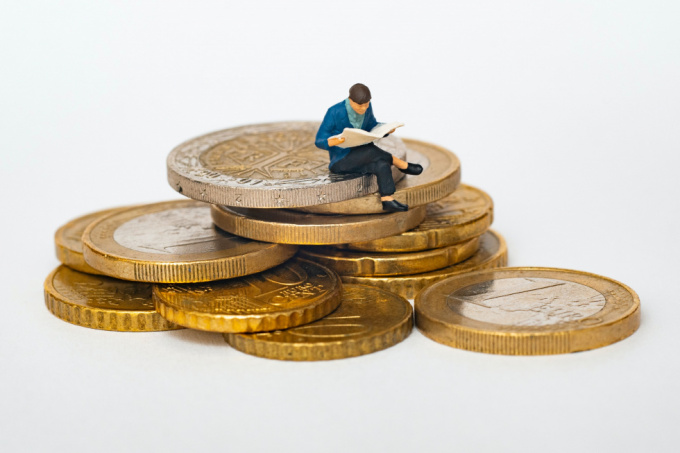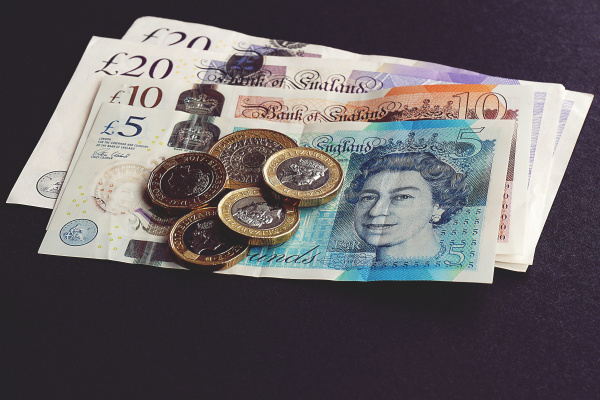50 ways to live below your means || 50 frugal living tips

1). Track your spending so you can see where your money goes
Create a simple spreadsheet and log what you spend every single day
Categorise your purchases, so list things under headings such as ‘Groceries,’ ‘Entertainment,’ ‘Beauty and self care’ etc. so that it’s easy to identify where you may be overspending and that allows you to plan ahead and make cutbacks wherever possible.
2). Create a budget
Be firm but realistic with yourself when it comes to budgeting.
What’s your income? What are your non-negotiable outgoings? How much money do you want to spend on leisure?
Sitting down and doing the figures will give you a tight grip on your finances and you’ll know exactly where every penny is going.
3). Go on a low-buy, no-buy
A low buy, no buy is a challenge where you commit to not spending any money on what you consider non-essential.
The great thing about a low buy, no buy is that it can very quickly drive home to you how little you need in life.
Everyone’s rules for their low buy, no buy is different - some are very strict whereas others allow for a bit more flexibility. Create rules that will work for you.
4). Reduce your direct debits
Login into your bank account and look at all your fixed outgoings and ask yourself if there is anything that you can eliminate.
Cancel subscriptions and memberships you don’t use regularly and pay off any installment plans you may have signed up to in one fell swoop if possible.
5). Be wary of subscriptions
By themselves each subscription to a service can be very little but these subscriptions add up.
Subscriptions to Amazon Prime, Spotify, Kindle Unlimited etc. can mean you are spending hundreds of pounds every year.
Keep the ones you use regularly and cut the rest.
6). Cut cable or downsize your package
With so much programming available for free online, ask yourself if your cable package with all the bells and whistles is worth it or whether you could live without it or at the very least downsize your package.
7). Don’t upgrade your tech, unless it really needs it
The tech we have these days is incredible, we spend hundreds of pounds on them and it’s only right that they should last us a good few years before needing a replacement.
8). Find the best phone contract for your circumstances
Don’t get sucked into an expensive two year phone contract before you do the sums. Work out if it’s cheaper to buy the phone outright and then pay monthly for a package or if indeed going the contract route is better for you.
9). Reduce your food budget by meal planning
The true cost of food can be eye opening.
Without meal planning in advance and just picking up whatever you fancy, whenever you fancy it can mean that you end up spending hundreds of pounds every month.
If you shop savvy - think the cheaper supermarkets such as Aldi that have great quality stock and combine with local businesses offering good prices - you can eat for as little as £1 to £2 per meal.
It can be a lot of effort but the savings are significant.
10). Reduce your travel costs
The coronavirus has had a huge impact on the way we live and has opened our eyes to the possibilities of working remotely.
Not only does this save on travel costs but it’s good for the environment so it may be an idea, when things fully open up again, to try and negotiate some time working from home and also to explore other ways to travel to work, i.e. could cycling to work be an option?

11). Save money on utilities
All you need to do to save money on utilities is take advantage of a reputable price comparison and switching service website. You’ll need to input a few meter readings and they will do the rest for you.
One issue that you may encounter with these services is that they are quick to offer you another deal within a few months of you switching but don’t be tempted to switch at every opportunity - compare the tariffs between your provider and the new suggested provider and you’ll be able to tell if they truly are offering a better deal or not.
12). Buy second-hand where possible
But beware to check and double check the stock to ensure the items will work for you.
13). Entertain at home
London is an expensive city so one of the best ways of saving money is to entertain friends and family at home rather than going out.
14). Start a side hustle or get a part-time job
Both of these suggestions take time and commitment but financially they could be very rewarding.
Maybe you could teach English in your spare time?
Perhaps you have a spare room you can rent out?
Maybe you have free time on the weekends to do some dog walking?
15). Get into the habit of refunding items
If you buy anything that you are disappointed with, don’t waste your time and try and make it work for you just because you can’t face the minor hassle of getting a refund.
16). Redefine your definition of “rich”
It’s OK to want nice things and to strive for a wealthier future but it doesn’t mean you need to be discontent with what you currently have.
Take the time to be grateful for all the good that surrounds you, recognize the ‘riches’ that you already have and it will have a huge impact on your attitude to saving money and living within your means as you won’t always be wanting more.
17). Borrow and share
Find alternative ways of getting items you want.
Do you have a friend or sister who has samples of makeup and products she can give you or outfits and jewellery she can lend?
18). Always have a cooling off period before buying something
Avoid impulse shopping like the plague.
If you want something, then impose a cooling off period for yourself so you have the time and space to really consider if you want to go ahead with the purchase or not.
Often you may forget about the item or think better about really needing it so it’s wise to incorporate this habit when it comes to shopping.
Even if things are on sale and in limited supply and there’s a chance that your cooling off period might mean that you lose out, it’s often better to sometimes lose out then make a rash decision that you weren’t ready for.
19). Filter out advertising as much as you can
If you get triggered to spend money because of promotions and ads in marketing emails and on your social media then simply unsubscribe from those emails and change your ad preferences to minimise temptation.
20). Invest in your health
Getting sick can be expensive, even if you’re lucky enough to live in a country with a free national healthcare system.
You may have to buy medication, you may be out of work for a while which can impact on your earnings and generally feeling down when unwell makes us take our eye off the ball when it comes to budgeting and living frugally.
Take the time to invest in your health. Eat well, exercise regularly, make sure you pay attention to your mental health - all of this will impact your overall well being, allowing you to face the world and show up for yourself.

21). Get into the habit of saving
Incorporate regular saving into your budget as a non-negotiable.
On pay day, deposit a set amount into your savings accounts and build up an emergency fund for the future. You’ll be grateful for that financial cushion should something unexpected happen.
22). Stop comparing yourself to others
This is easier said than done but it’s an important habit to cultivate.
Comparing yourself to others - especially others who are wealthier than you and able to flash the cash - may lead to discontentment and overspending in your own life
Remember to keep your eyes firmly on your future goals and ignore what everyone else is doing along the way.
23). Don’t get taken in by get-rich-quick schemes
Get-rich-quick schemes prey on people’s hopes and dreams and can be extremely exploitative so be wary of anything that sounds too good to be true!
Online courses that promise to make you rich overnight are just scams and you don’t need them.
Put in the time and effort and you’ll be a success in your own right.
24). Be brutally honest with yourself about what you can and can’t afford
Knowing what you can and can’t comfortably afford is really important when it comes to living within your means.
If you would love to own a designer handbag but can’t afford it then be honest with yourself and admit that there is no way you can spend thousands of pounds on a bag. Park that dream for another day and another time and recognize that there are things in your life that are a higher priority.
25). Don't use retail therapy to get you through tough times
Although it’s fine to treat yourself to a pick me up coffee or takeaway if you’re feeling down, it’s not wise to routinely use treats to alleviate feelings of boredom, loneliness, depression or unhappiness.
It’s important to tackle any deeper issues head on and not use retail therapy as it’ll only be a temporary fix.
26). Be wary of sales
If you’ve been eyeing something in particular for a while and it happens to go on sale at a good discount, then you should snap it up but otherwise you should be wary of sales.
The seasonal sales in big department stores are selling stock that have been sitting on the shelves for a while and that they’ve not been able to shift for one reason or another.
These products and garments have often been handled by multiple people and there’s a reason why they haven’t sold so be careful of thinking you’ve got a good bargain when you might not have.
And sales shopping also doesn’t necessarily mean you’ve saved money. If you weren’t intending to buy the item at full price and have only been moved to complete the purchase because of the sale then you’re still parting with money that you wouldn’t have otherwise.
27). Repair before you replace
Repairing items is often cheaper and more sustainable than replacing an item so try and see if you can extend the lifespan of your possessions in this way.
28). Resist being a two car household
Cars are incredibly convenient but they are also incredibly expensive and bad for the environment.
The best ways to get about are obviously walking, cycling and using public transport but if you do feel you require a car then try and limit it to one vehicle for your household.
Plan your family’s journeys ahead of time, look into carpooling with neighbours and impress upon your family the financial and environmental benefits of having one car over two.
29). Think about the size of your home
If you live in London then this is unlikely to be an issue for the average person as the houses aren’t that big however in different parts of the country and around the world, large houses can be snapped up at much more affordable prices but just because you can afford it doesn’t mean you should always get it.
Does a family of four really need a six bedroom house with two garages?
Is the cost of running such a large space really worth it? How much money would downsizing save? Think about those questions when evaluating where you choose to live.
30). Avoid shopping online as a form of relaxation
Try and find other ways to do that - maybe find a creative hobby that will take up your time and attention and get you into a flow state, that can be just as relaxing and rewarding as online shopping, if not more so.

31). Plan ahead for big expenses such as upcoming birthdays and the holidays
These events can become very expensive but if planned for months ahead of time you can absorb the cost in increments.
32). Declutter your home and sell what you don’t need
This is a great way to generate some extra cash very quickly.
Why not play the minimalism game?
If you don’t know what the minimalism game is, it’s when a person declutters over the course of a month. On day 1 you will get rid of 1 item, on day 2 you will get rid of 2 items, on day 3 it’s 3 items etc etc.
By the end of the month - depending on how many days there are in the month - you will have decluttered anywhere from 406 to 496 items and amongst those items there should be plenty of things you will be able to sell on for a nice chunk of change.
33). Cut and colour your own hair
Regular salon appointments can get expensive so if you can learn how to cut and maintain your own hair you can make quite the saving.
There are plenty of YouTube tutorials out there that can help you and if you don’t feel confident to do it all yourself, the first time round, then you can always call on a friend to come and help.
34). Look for deals on beauty treatments and experiences
Using discount sites to see if you can get good deals on things like massages and other experiences.
35). Eat less meat, sweets and alcohol
All of these are very expensive when compared to other food and drink items and cutting back even a little will make a difference to your wallet.
36). Eat leftovers
Ensure your meals go even further by eating leftovers.
This along with meal planning and cutting back on more expensive food items will help you make significant savings.
37). Choose water over other drinks
Water can cost almost nothing as opposed to fizzy drinks and alcohol so try and choose it as your default.
This is especially good for children - if you can get them in the habit of drinking water over other options, it’ll stand them in good stead as they grow up.
38). Refinance your loans to save on interest
A debt pay off journey is stressful enough as it is and you don’t need to be swimming against the tide by paying off high interest loans as well as the principle.
Consolidate and refinance your loans to reduce down the interest you’re paying and embark on an aggressive a debt pay-off plan as possible
39). Explore store brand options
Store brand options can be just as good, if not better, than name brand options so it’s important to be open minded when you shop and try cheaper alternatives to see if you like them better.
40). Wear your clothes more than once before washing
Unless you’ve been sweating, it’s normally perfectly possible to wear your clothes more than once before putting them in the laundry.
Save on electricity and water by reducing the amount of laundry you do.

41). Skip regular lattes from coffee shops and instead make your own
This might seem like a small saving but it builds up.
Another tip when it comes to coffee is that if you’re using a coffee machine, reuse coffee filters. Again, this is a tiny saving that really does build up. What is it they say, if you look after the pennies the pounds will look after themselves.
42). Use a programmable thermostat
By using a programmable thermostat you can ensure your energy bills don’t get out of control.
43). Go reusable where you can
For example, swap over from paper towels to cloth towels in the kitchen.
While you may pay an upfront cost for the reusable version you’ll save money in the long run.
44). The next tip is to buy in bulk
But only if it makes sense.
If products you regularly use or consume are being offered on deals then by all means take advantage.
However bulk buying does mean that you will need to compromise some of your space to store things.
Also retailers will often have deals on unhealthy treats and bulk buying these items isn't the best idea because not only is it bad for your health, it’s also bad for your wallet as it encourages you to buy more of these items than you otherwise might have.
45). Don’t buy bottled water
If you’re lucky enough to live in a country where you can drink tap water, buying bottled water is just a waste of money.
46). Switch to LED lightbulbs
LED light bulbs are more energy efficient and last longer than traditional light bulbs, thus reducing energy bills.
47). Turn off switches at the sockets when not using an appliance
When appliances like TVs are turned off using the remote, they aren’t truly off - they are in standby mode and still using up electricity.
The worst culprits for this type of energy consumption are TVs, games consoles,computers, phones, tablets, laptops, set top boxes and recorders.
48). Shop your stash
Whenever you find you need something don’t automatically go and buy it, instead look at what you have already and see if something can serve that same purpose.
This will allow you to rediscover clothes and shoes and use up all the random makeup samples and mini travel toiletries you have accumulated over the years.
49). Go shopping by yourself
Very often if you go shopping with friends who aren’t of the same frugal mindset they will encourage you to make purchases that you might not be 100% sure of, and because you don’t want to spend ages in the shop running through the pros and cons of whether or not you should buy the item, you may get rushed into a decision before you’re ready.
If you’re trying to live below your means, avoid making shopping a leisure activity with friends and find some other way to spend your time together.
50). Stay inspired by following frugal living social media accounts
Frugal living and saving money can be incredibly rewarding just by itself but we all need a little additional motivation here and there and one of the best places to get that is by seeking out social media content that aligns with our values and goals.















